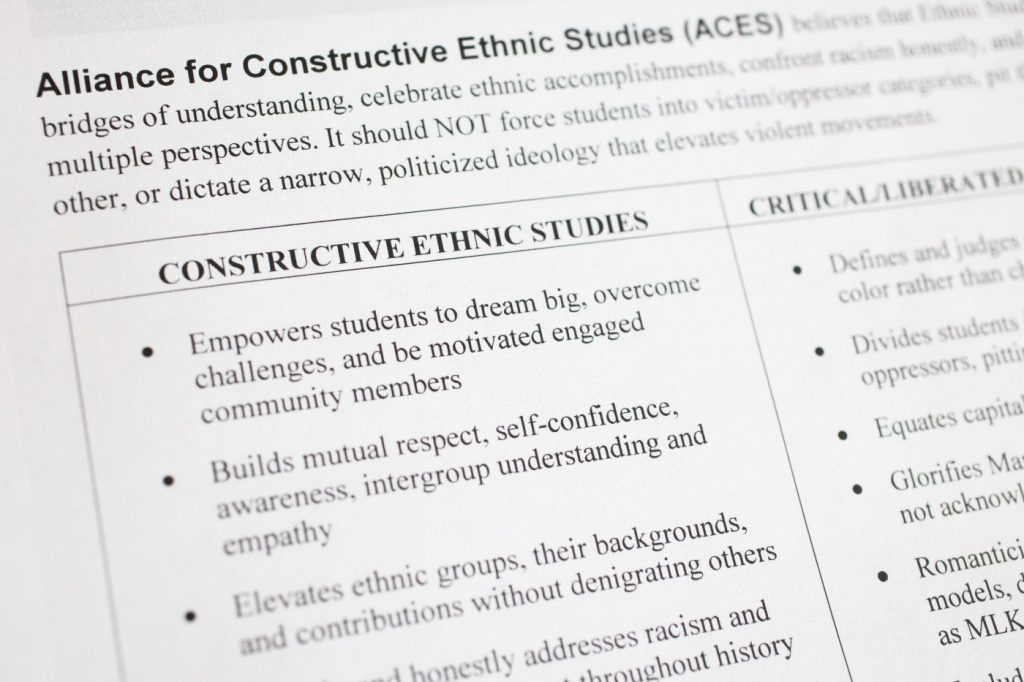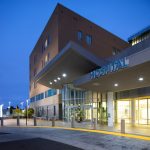California’s public schools will be required to offer a full-year course in ethnic studies beginning in the 2025-26 school year. And by 2030, students won’t be able to graduate without it.
But school districts, including some in the Bay Area, are caught up in a curriculum crossfire that’s landed some in hot water — and court.
Ethnic studies examines the history of race and ethnicity in the United States, with an emphasis on the experiences of people of color. But as public schools face heightened tensions stemming from the Israel-Hamas war, the clock is ticking for educational leaders to address how to teach the state’s new mandate — especially when it comes to Israel, Palestine and the ongoing conflict.
The state took five years and four drafts to approve an ethnic studies “model curriculum” for schools to follow. But districts are not required to implement it as long as their curriculums don’t reflect or promote bias, discrimination or religious doctrine.
There are two competing visions of ethnic studies at the heart of the conflict: critical or “liberated” ethnic studies — often taught at universities — and “constructive” ethnic studies, which the state’s model now closely resembles.
The key difference between the two courses comes down to politics, said Elina Kaplan, co-founder of the Alliance for Constructive Ethnic Studies, an advocacy group pushing for schools to implement constructive ethnic studies.
The liberated model “focuses on power structures, repression, imperialism, colonization,” Kaplan said. “Everything else is what we would call constructive ethnic studies. Think of it as the depoliticized version of ethnic studies.”
Elina Kaplan, the co-founder of the Alliance for Constructive Ethnic Studies, at her home in Foster City, Calif., on Friday, June 7, 2024. (Dai Sugano/Bay Area News Group)
When the state unveiled the first draft of its curriculum in 2019, the material was largely criticized for being antisemitic, loaded with politically correct jargon and not inclusive enough about the histories of Jewish, Armenian, Sikh and other communities.
“It was very clear that it did not represent all of the communities that needed to be included,” said Marc Levine, a former state Assembly member and the Central Pacific regional director for the Anti-Defamation League. “In fact, it had discriminatory language specifically about Jews and Israel.”
The draft received over 20,000 public comments, most of which objected to the omission of Jewish Americans and antisemitism, while Israeli persecution of Palestinians was highlighted. The 2019 draft also included sample topics focusing on strikes and protests for Palestine and calling for the boycott, divestment and sanctions of Israel.
One source material included a song by Ana Tijouz and Shadia Mansour, with the lyric, “for every free political prisoner, an Israeli colony is expanded.”
Gov. Gavin Newsom described the curriculum as “insufficiently balanced and inclusive” and said the draft needed to be substantially amended.
In 2021, he approved a bill that revised the model ethnic studies curriculum and removed content Jewish groups found harmful. Palestine isn’t mentioned once in the finalized 700-page curriculum model or 30 sample lessons, although lessons on the Holocaust, antisemitism and Jewish American identity are included.
The original course was designed by a group of 19 ethnic studies experts who were selected by the California Department of Education. After the state revamped the curriculum, some members of the group joined with other educators and activists to develop and implement their own course, the Liberated Ethnic Studies Model Curriculum Coalition.
The group did not respond to The Bay Area News Group’s request for comment, but in a statement on its website said that the ethnic studies model curriculum that the state Board of Education approved in March 2021 “bears so little relation to the original draft” that every member of the advisory council “demanded that their name be removed.”
The coalition complained that the state’s new curriculum “sanitizes” the course by removing or redefining terms like capitalism and revolution, erases all mention of Palestine and fails to depict the impact of the Black Lives Matter movement and the true causes of police brutality.
But the liberated coalition’s model also has been widely criticized as antisemitic.
StandWithUs, an international nonprofit promoting Israel education, said the coalition was trying to “exploit” the state’s new requirement as a “platform for antisemitism, anti-Israel propaganda and other forms of bias.” The Foundation Against Intolerance and Racism said the model’s promotion of a specific political view violates the California Constitution and Education Code.
Several California school districts are already facing lawsuits over material some find objectionable.
Related Articles
Stanford University to resume requiring SAT, ACT for undergraduate applications
Privacy vs. safety: East Bay school district faces backlash over silence on student’s alleged kill list
One South Bay school flouts California recycling law — but few complain
New library comes to North Sunnyvale, replaces old community pool
Man admits sexual assault of 3rd grader in California elementary school bathroom
The Deborah Project, a law firm advocating Jewish civil rights, has sued Mountain View-Los Altos Union High School District and Hayward Unified High School District, citing “overtly” antisemitic teaching materials.
The firm has also sued the coalition for pushing antisemitic and anti-Zionest materials in Los Angeles public schools.
Sequoia Union High School District, Morgan Hill Unified School District and Berkeley Unified School District are also facing backlash from community members for their ties to the liberated coalition’s model.
While both course models focus on four areas — Black studies, Asian American and Pacific Islander studies, Chicanx/Latinx studies and Native American studies — Liberated’s material largely excludes the histories of ethnic groups who may be considered White.
The Liberated Coalition explained that its course material does not include European-American ethnic groups, including Jews, because while those groups have faced discrimination, “their experiences differ from the contemporary and historical experiences of radicalized communities in the U.S., especially their experiences with racism and colonialism.”
Liberated also focuses heavily on activism in its student assignments. For one lesson on redlining and U.S. housing discrimination, the course has students write a persuasive letter to county leaders calling for reparations.
The group responded to criticism of its course saying that students are aware of their surroundings — including racism and injustice — from a very young age.
“Ethnic studies doesn’t tell students what to think, but it is a framework for understanding their reality,” the group said.
But co-founder of the Alliance for Constructive Ethnic Studies, Kaplan, said the model stands to do more harm than good in the long run.
“Ethnic studies is good and it’s healthy and it’s the right thing for our students to be learning,” Kaplan said. “They should just be learning it in the way that the legislators intended, which is in this positive empowering way to learn about each other and to confront racism and discrimination.”


